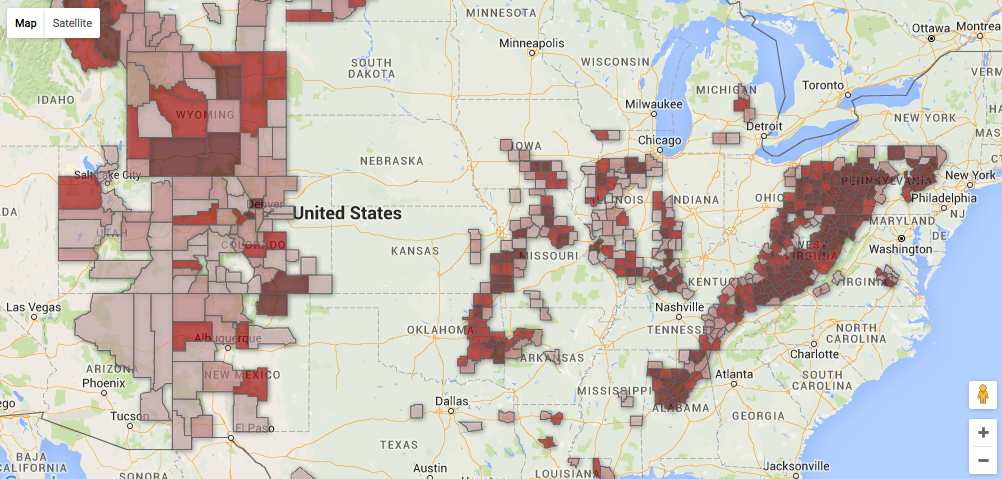Cleaning Up Coal Ash
For well over a century, power plants across the country have burned coal to generate electricity. And for just as long, leftover coal ash has been dumped in open, unlined pits near the power plant, usually located on a river or lake. Every year, U.S. power plants produce 130 million tons of coal ash, which is the second largest waste stream in the country after municipal garbage.
Coal ash concentrates the toxic heavy metals found in coal, including arsenic, mercury, lead and selenium. Stored in unlined, wet impoundments, coal ash has been leaking these toxics into our groundwater and surface waters for years. Sometimes these impoundments collapse — with disastrous results.
Yet government regulations for coal ash management are either non-existent or sparse, and there is little enforcement of the regulations that do exist. In North Carolina, this lack of oversight — and the complicity between state regulators, elected officials and Duke Energy — came to a boiling point in February 2014 when one of Duke’s coal ash impoundments spilled 39 million tons of ash into the Dan River.
Citizens living near North Carolina’s 33 coal ash impoundments — all of which have leaked — have fought for transparency from Duke and the state, and for cleanup of the pollution that threatens their property value, health and family. Their actions forced this issue into the headlines of news networks and to the forefront of environmental justice conversations in the United States.
Appalachian Voices stood with these communities as we worked for years to compel Duke Energy and the N.C. Department of Environmental Quality to excavate coal ash from all the North Carolina sites and dispose of it either in lined, dry landfills, away from waterways, or by recycling it for concrete or other uses, provided it’s done in a manner that protects public health and the environment.
On Jan. 2, 2020, North Carolina announced a historic settlement with one of the state’s most powerful corporations and polluters, Duke Energy. The settlement requires Duke to move nearly 80 million tons of toxic coal ash at six of its power plants to properly lined landfills onsite or recycle it.

Learn information about specific coal ash impoundments in the South, including health threats and safety ratings:
Additional Resources
Fact sheets, videos, links to academic research, and more
Sign Up to Act
Help us protect the health of our communities and waterways.
Latest News
Groups force strong pollution controls on Virginia gas plant
Contact: Evan Johns, Appalachian Mountain Advocates, 434-738-186, ejohns@appalmad.org…
Announcing the Energy Savings for Appalachia webinar series
If you happened to miss our first energy efficiency on-bill financing webinar on May 11, don’t despair. You can watch the recording of the webinar, which is the first in a series describing the benefits of on-bill financing entitled “Leveraging Energy Savings: On-bill Financing as an Economic Opportunity in the Southeast.”
Big steps for Energy Savings for Appalachia
We launched our “Energy Savings for Appalachia” program in 2013 with high hopes of making home energy-efficiency improvements more affordable for more area residents. We reached a major milestone in April when Blue Ridge Electric Membership Corp. (BRE), a rural electric cooperative in western North Carolina, announced a new financing option for its members.
Connecting the economic dots in Southwest Virginia
More than 300 people turned out for the recent Southwest Virginia Economic Forum hosted by UVA-Wise — perhaps the largest gathering of people coming together to talk specifically and hopefully about solutions for the region’s economic future. A week later, the positive energy coming out of the forum is still palpable in the community, with some feeling it may have been the turning point for the region.
DEQ dodges legitimate coal-ash safety concerns
Enabled by anti-regulatory powers in the legislature, the N.C. Department of Environmental Quality has abandoned the principles necessary to serve the public. It’s time for lawmakers to acknowledge DEQ’s failures and focus on moving forward on coal ash cleanup.
RECLAIMing Central Appalachia
From The Appalachian Voice: A rare bipartisan proposal aims to tackle two pressing issues related to the flailing coal industry — the need for new economic opportunities in central Appalachia and repairing environmental damage from decades of mining.










